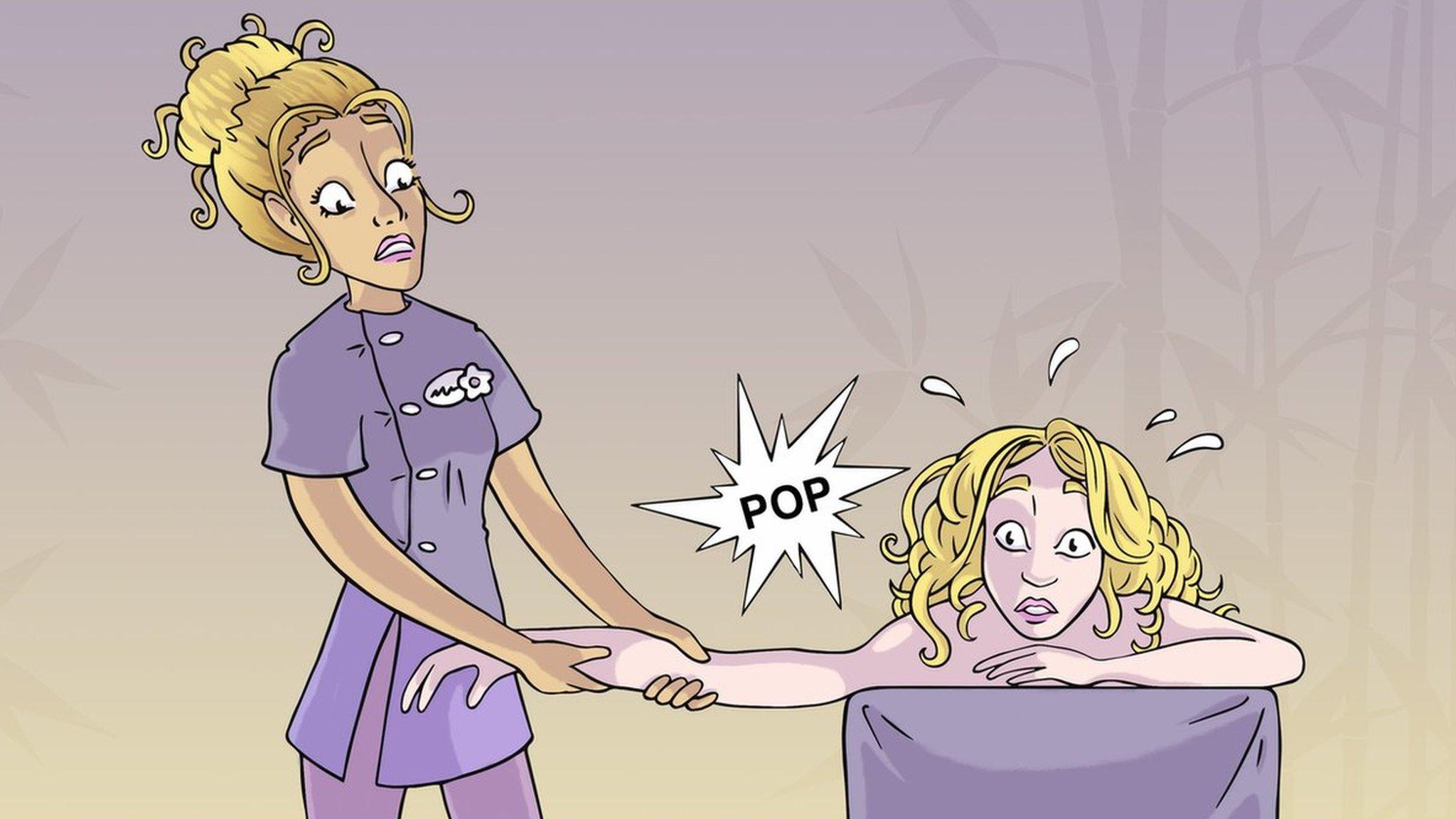Take a look behind the scenes of Ouch Storytelling Live
- Published
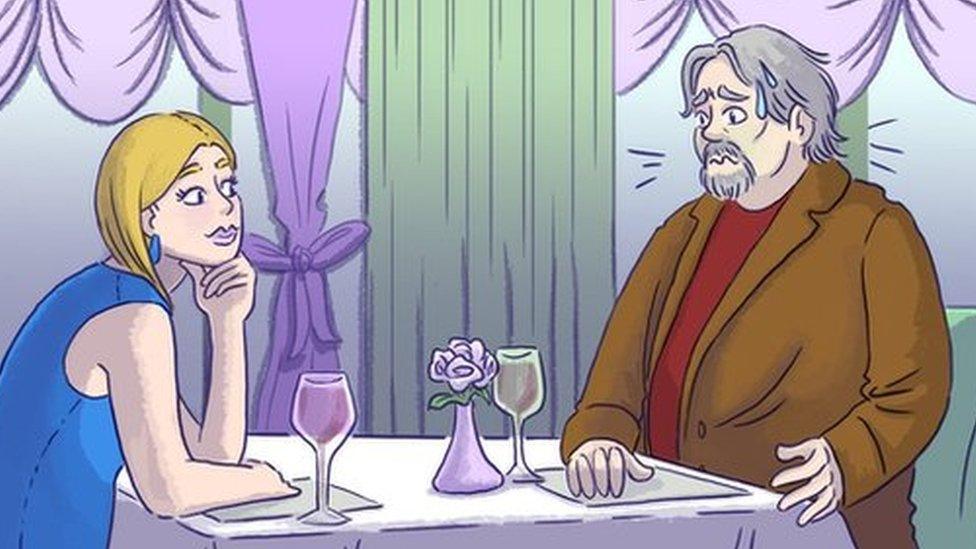
The date saboteur strikes again...
Philip Henry was one of the performers at our BBC Ouch Storytelling event in 2018. Here he writes about the whole experience of what it was like to perform his tale, The stomach-churning one-night stand.
The Edinburgh festival is in full swing and, against all odds, I'm a part of it and have arrived 24-hours before I'm due on stage.
I live in Northern Ireland and am here early for the same reason I haven't been on a plane for 22 years - Crohn's disease. In case you're unaware what Crohn's is the NHS describes it as a "lifelong condition in which parts of the digestive system become inflamed", but I prefer to say he's a nasty little squatter who hides in my intestinal tract and delights in making my life complicated. Thanks to the organisers at the BBC, I was able to catch a flight at a time of day when he was least likely to appear.
I am at the world famous festival because I submitted a story about how the squatter once tried his best to sabotage a romantic evening. It was chosen by Ouch as one of six to be performed in front of a live audience - so I needed to know it off by heart.
As I sat at the airport, I ran through it, and when I got to my hotel room I said it out loud to make sure it hadn't fallen out of my head on the flight.
The show was being recorded for transmission on BBC Two, the News channel and Radio 5Live. I ran through the story again, just to be absolutely sure I hadn't lost it in the hotel room.
After arriving at the BBC venue, I got my hair and make-up done, then I waited in the green room. Oddly, I wasn't that nervous.
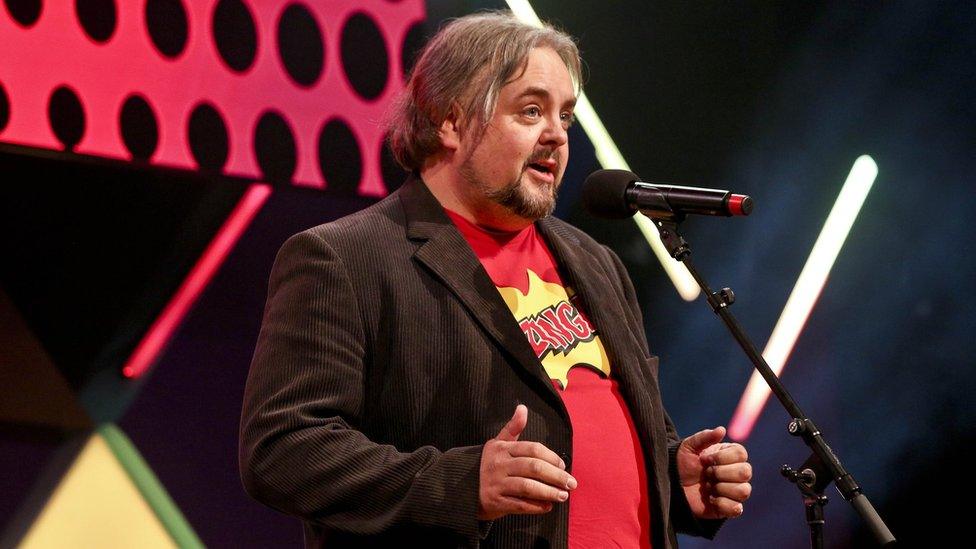
Philip Henry on stage at the Edinburgh Fringe
The toilet next to the stage did a lot to relax me and silence the squatter. I waited in the wings as the host, Britain's Got Talent winner, Lost Voice Guy did a few gags and then introduced me. I told myself I was Jerry Seinfeld and walked on.
My opening line was, perhaps unsurprisingly, about diarrhoea. It got a laugh and a few groans, but they were the right kind of groans. I was encouraged by the audience reaction.
My obscure Star Wars reference got a big laugh which I wasn't expecting and that boosted my confidence even more. These were my sort of people.
I reached the end of the story and my punchline got more laughter and a huge round of applause. I walked off the stage and was congratulated by everyone. They said I'd done well. It was all a blur to me.
After the show aired I got a lot of Tweets and emails, and they were all positive. Messages of support came from all over the UK and Ireland, and even as far as America.
The following night I was approached by a stranger in a restaurant who shook my hand and congratulated me on my story and performance. I'd been recognised. Fame at last.
Since then I've received funding from Northern Ireland Screen to make Crohn's, Actually - a short film version of my story. I hope to use the film to raise awareness of Crohn's and colitis, and hopefully further my career as a writer and film-maker.
I'd encourage anyone to take part in BBC Ouch: Storytelling Live. The whole journey has made me more confident about living with my condition.
Unlike the hero of my story, I don't try to hide my illness anymore. I may not be able to evict my squatter, but now everyone knows he's there, I feel I don't have to apologise for his actions so much.
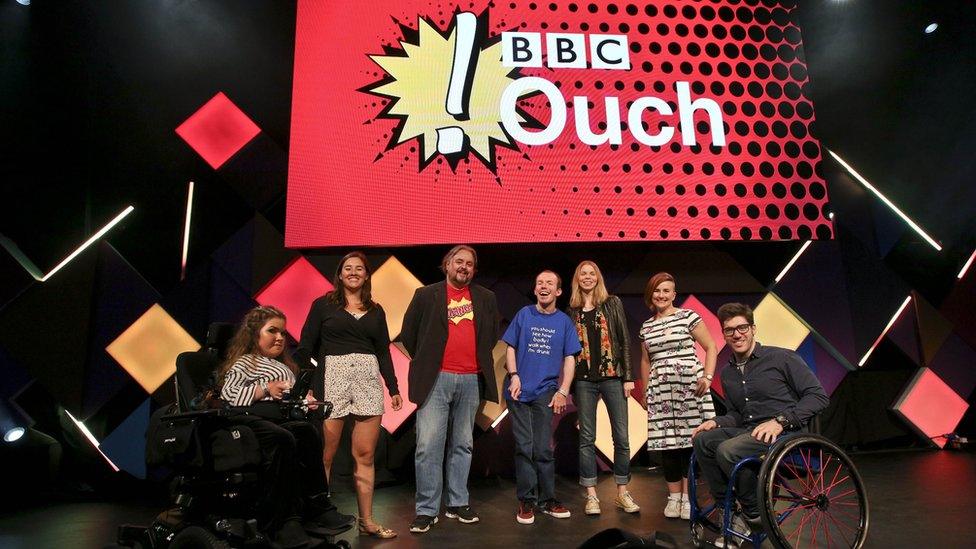
Storytelling Live at Edinburgh Fringe
If you fancy doing what Philip did you have until 10:00 BST on 2 July to email your story to ouch@bbc.co.uk, external
The theme this year is Lost and Found - interpret that how you like - but the stories must be true and relate to you being disabled or having a mental health difficulty.
Not sure where to start? We have some fabulous writing tips here courtesy of the pros at the BBC Writers Room.
As well as meeting the deadline you also need to be free to perform your story to an audience and camera crew on 5 August in Edinburgh - don't worry, you'll get to work with a comedy script producer before then to make it ship-shape.
If you're selected we'll do our best to satisfy any access requirements and we can help with travel costs if you're in the UK too.
Best of luck and for more of a taster have a look at some of the previous storytellers we've had over the past three years.
Lee Ridley a.k.a. "Lost Voice Guy" reveals the perils of relying on a synthetic voice for comic timing
We turned some of the stories into articles too, have a read:
John Servante on how a mental health meltdown led to love
For more Disability News, follow BBC Ouch on Twitter and Facebook, and subscribe to the weekly podcast.

- Published7 June 2019
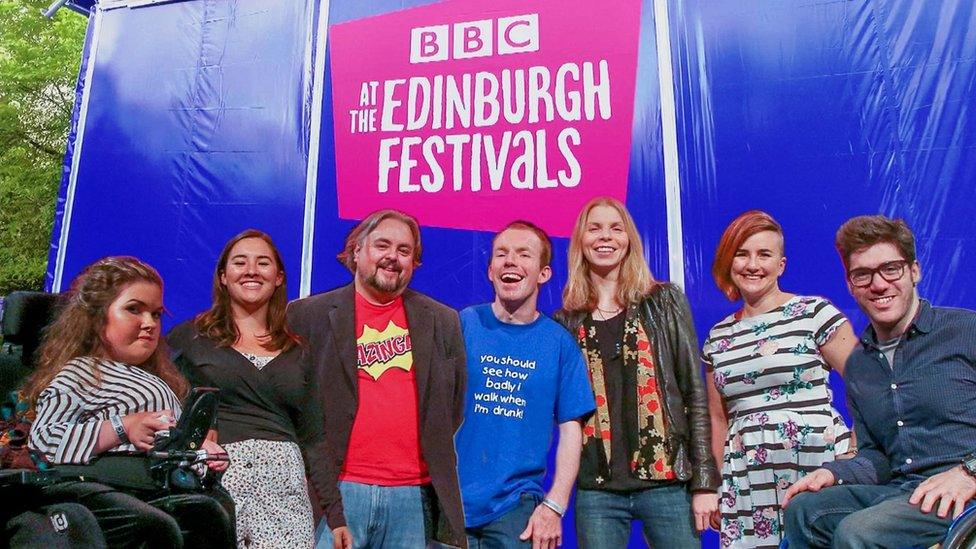
- Published28 August 2018
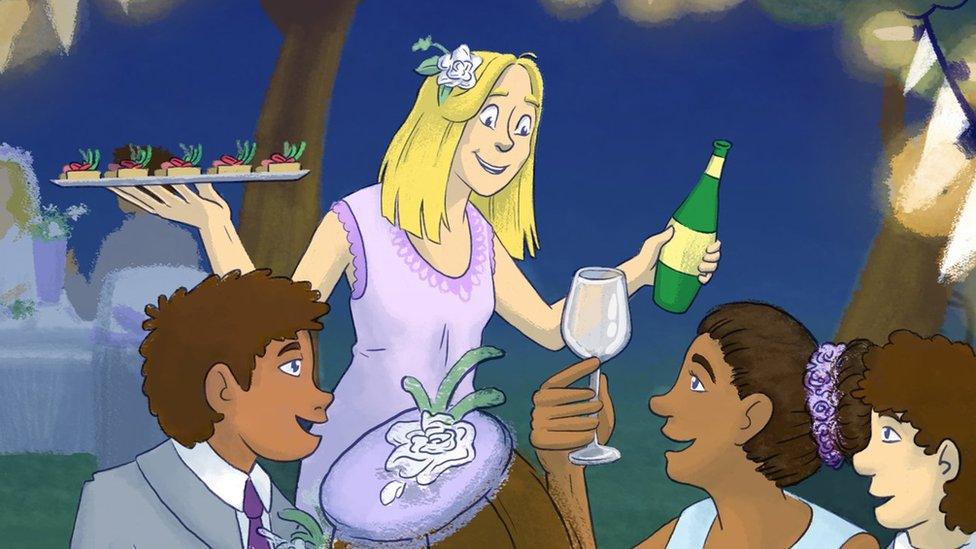
- Published25 August 2017
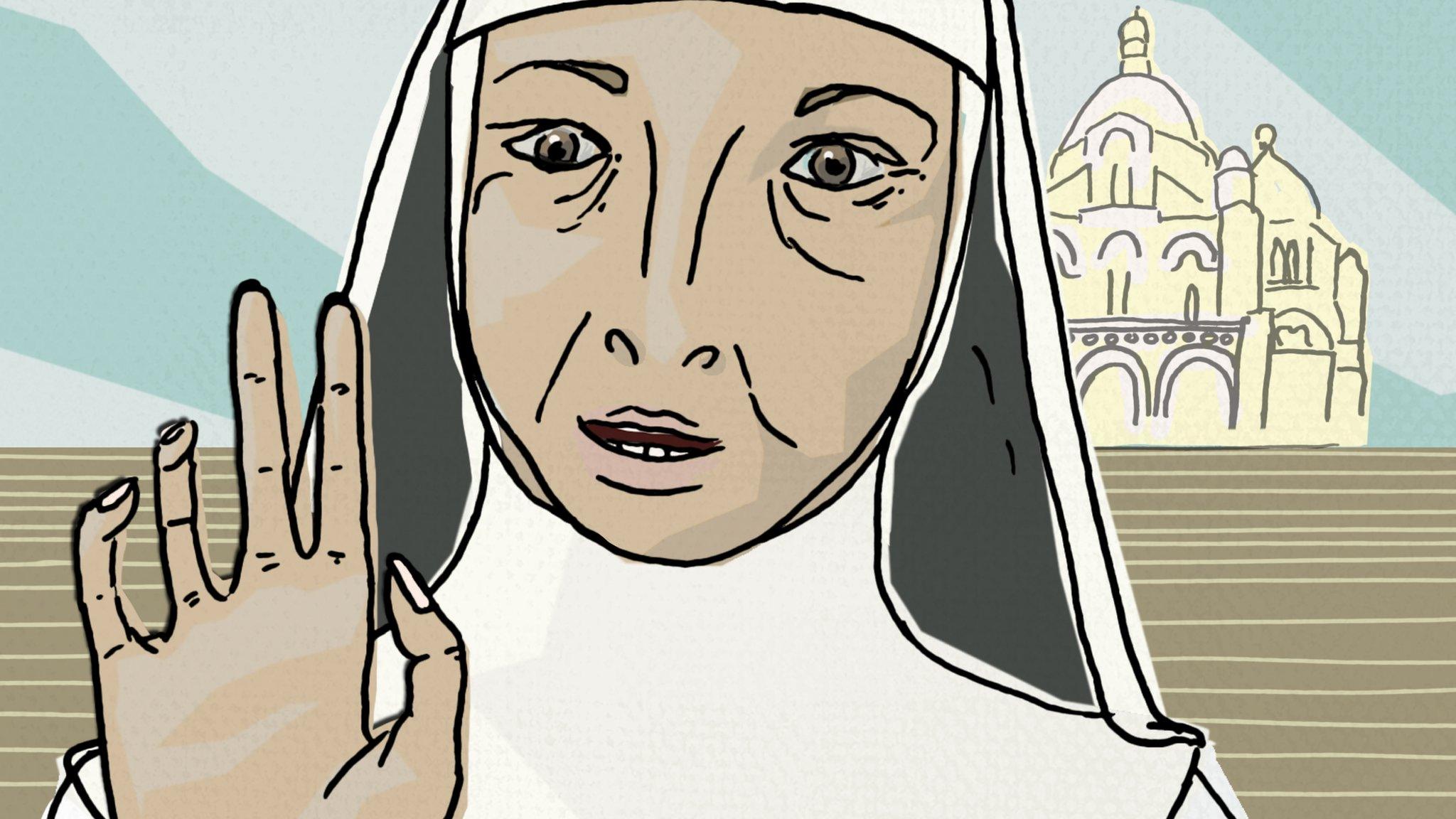
- Published18 August 2017
